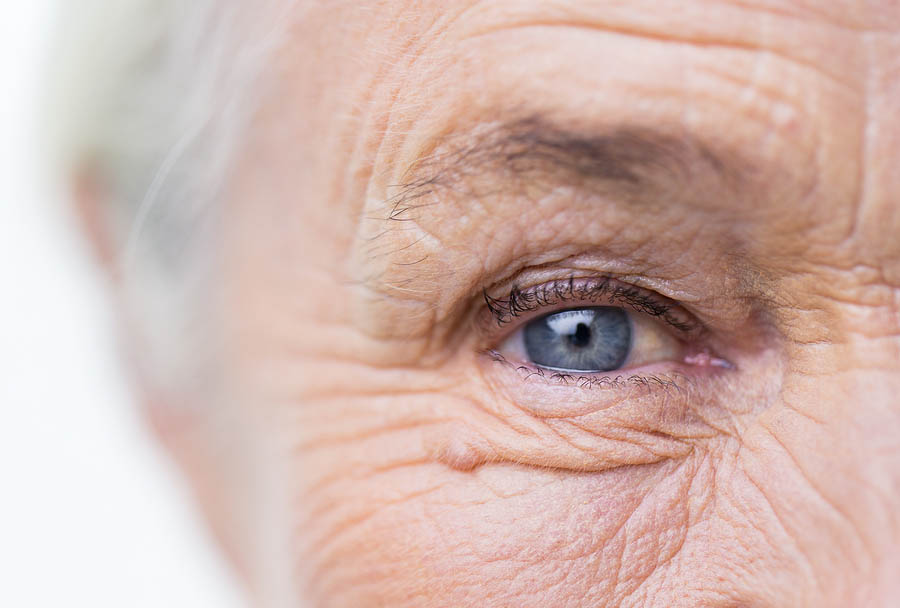This is a myth as our eyeballs are normally fully developed by the time we reach our early 20s, and the good news is they don’t shrink as we get older.
Your eyes look smaller when the skin above and under the eye is loose or wrinkled, known as Eyelid ptosis which simply means loose skin as a result of age and sun exposure. This appearance is accentuated by the light or shadow of your wrinkles around your eyes.
In addition, the contrast that makes your eyes look alert is reduced by the loss of colour and fullness you have in your eyelashes.
Why do your eyes get smaller as you get older ?
Answer snippet:
Actually, our eyeballs don’t shrink as we get older but only appear that way due to sagging skin around our eyes, often due to aging and sun exposure. In addition, your eyes look smaller when the skin above and under the eye is loose, wrinkled and a dark coloured tone appears under your eyes.
3 reasons your eyes look smaller as you get older
- Sagging eyelids
- Sagging skin
- Dark coloured tone under your eyes
How does your eye function change as you age ?
It is entirely normal to notice changes in your vision as you get older, particularly as we reach our 60s and beyond.
Some of the main changes that can occur are –
1) Our eyes need more time to adjust to changing levels of light.
2) You may have trouble distinguishing colours you see, such as blue from black. Cells in the retina of your eye responsible for normal colour vision decline in sensitivity as we age, causing colours to become less bright and the contrast between different colours to be less noticeable.
3) A common problem for many older people is losing the ability to see objects, signs or text close up.
Thankfully, a lot of these problems can be easily corrected with the use of glasses, contact lenses and improved lighting.
It is important to have regular eye checks to keep your eyes as healthy as possible.
How to make your eyes appear bigger as we get older
- To make your eyes appear bright and well-rested ensure that you get plenty of good quality sleep.
- Keep hydrated, drink plenty of water to make your skin more firm.
- Make sure you use natural moisturisers to increase the firmness and hydration of the skin around your eyes.
- To help brighten your eyes naturally apply natural ingredient make up and contouring that is non-toxic.
- Almond oil.
- Raw potatoes. Potatoes contain vitamin C, enzymes, and starch that will nourish the thin skin below your eyes.
- Cucumber slices.
- Tea bags.
- Lemon juice.
- Fish oil.
What other age related eye conditions are there as you get older ?
Eye floaters: Floaters are tiny specks or spots that drift throughout your field of vision. They occur when a jelly-like substance inside the eye, vitreous becomes more liquid as you get older.
This causes ocular fibers to clump which casts tiny shadows across your field of vision.
Loss of peripheral vision: As we age our peripheral vision (size of our visual field) decreases by around 1 to 3 degrees per decade of your life.
You can expect a loss of peripheral visual field of 20 to 30 degrees by the time you reach your 70s and 80s.
Dry eyes: Your eyes’ tear production reduces as you age. Without enough lubrication to nourish the eye, dry eyes can cause light sensitivity and blurred vision.
They can also cause uncomfortable stinging, scratching, or burning sensations.
Cataracts: Small patches on the lens begin to form as your eyes’ proteins break down with age. These cloudy clusters known as cataracts stop light from passing through to your retina.
In some cases the cataracts may obstruct or blur your normal vision.
Tips to keep your eyes healthy as you get older
- Protect your eyes. When outside in sunlight wear sunglasses that block ultraviolet (UV) radiation and a hat with a wide brim when you are outside.
- Stop smoking. Studies show that smoking can lead to an increased risk of cataracts, age-related macular degeneration, diabetic retinopathy, glaucoma and dry eye syndrome.
- Have a good diet. Foods rich in plenty of vitamins, minerals and antioxidants can improve your vision and overall eye health.
Research has shown that vitamin C, zinc, vitamin E, lutein and zeaxanthin can reduce the risk of eye diseases such as cataracts and age-related macular degeneration. - Be physically active and maintain a healthy weight. Research has shown that regular physical exercise may reduce the risk of developing serious eye disease protecting your eyes as we age.
High cholesterol levels, high blood pressure and diabetes are linked to many eye diseases, and can be avoided by taking regular exercise.
- Try to maintain a normal blood pressure. High blood pressure can damage blood vessels in the layer of tissue at the back part of the eye.

